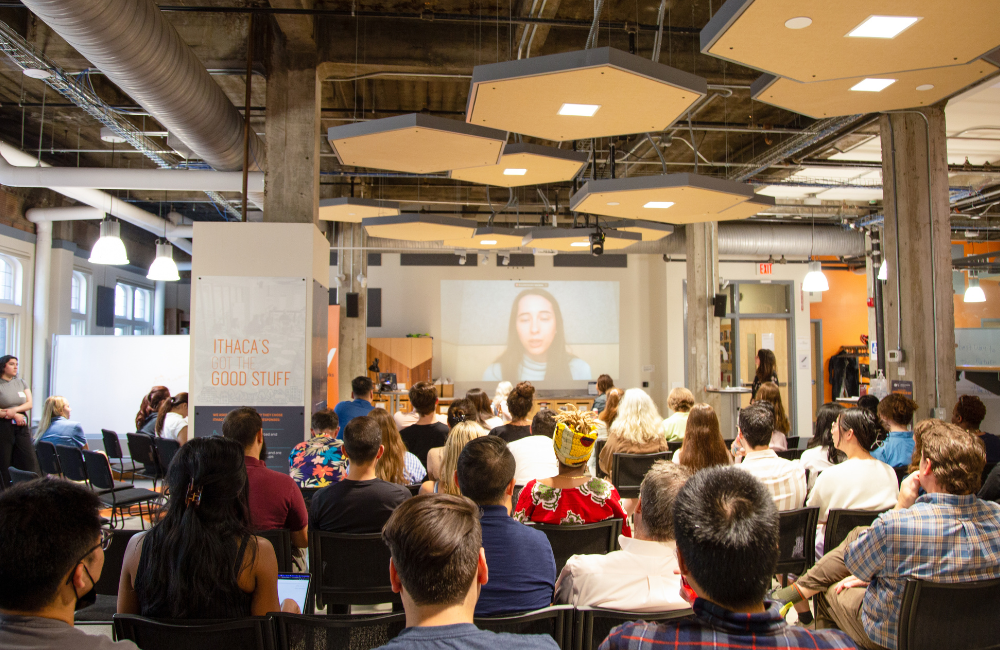
Networking Night Focuses on Gender Equity in Entrepreneurship
The local startup community recently convened at Rev: Ithaca Startup Works for Networking@Rev: Empowering the Ecosystem, an evening dedicated to gender equity in entrepreneurship. About 70 individuals attended the event to celebrate women and nonbinary entrepreneurs founders and discuss how the ecosystem can better support them.
Support for female-founded companies is on the rise — startups founded solely by women in the United States raised approximately $6.4 billion in venture capital in 2021, according to Pitchbook data. That’s 83% higher than the amount raised the year prior! However, it’s only 2% of the $330 billion in VC dollars that were invested in U.S. startups overall last year. Despite the progress toward gender equity, the entrepreneurial ecosystem still has room for improvement.
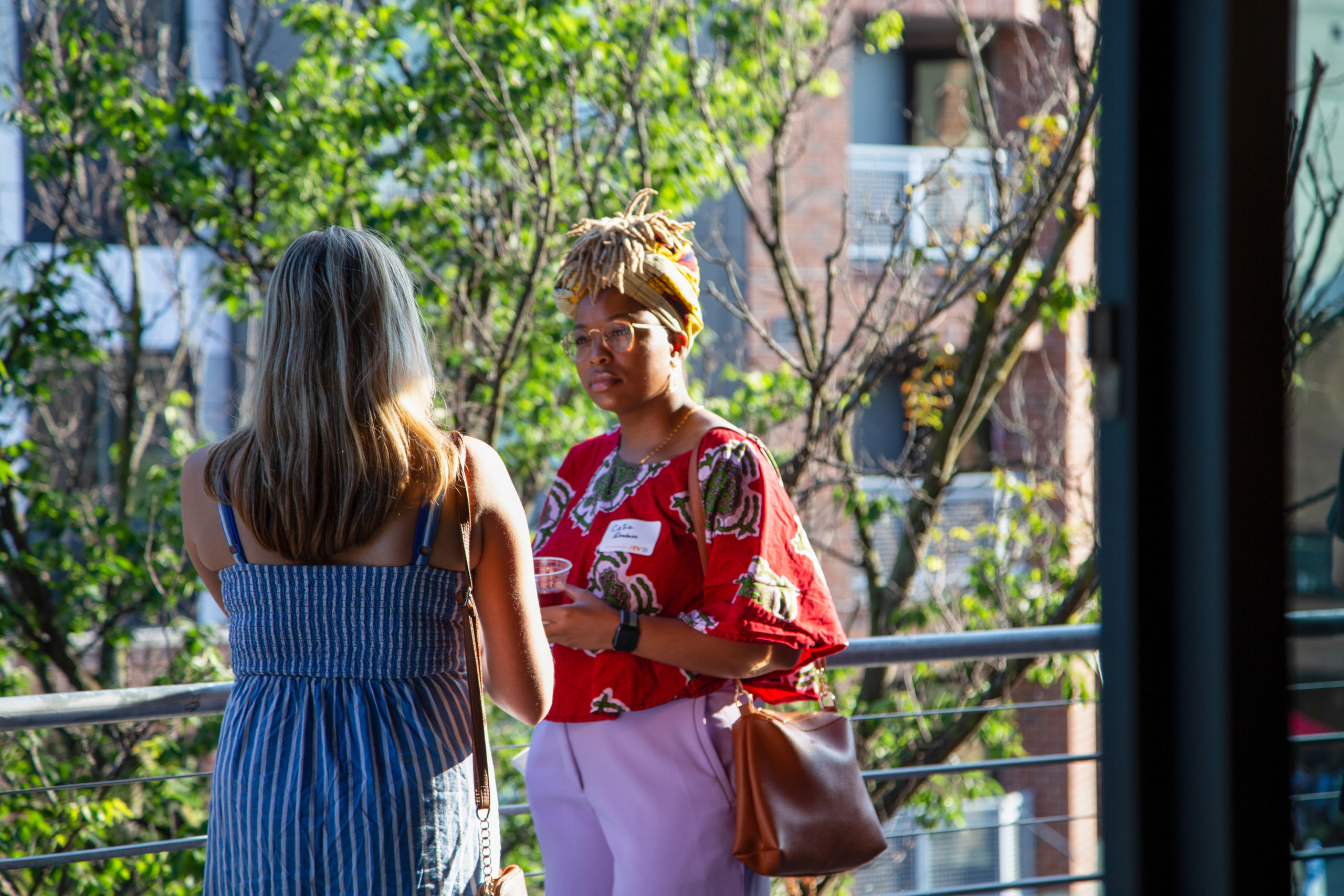

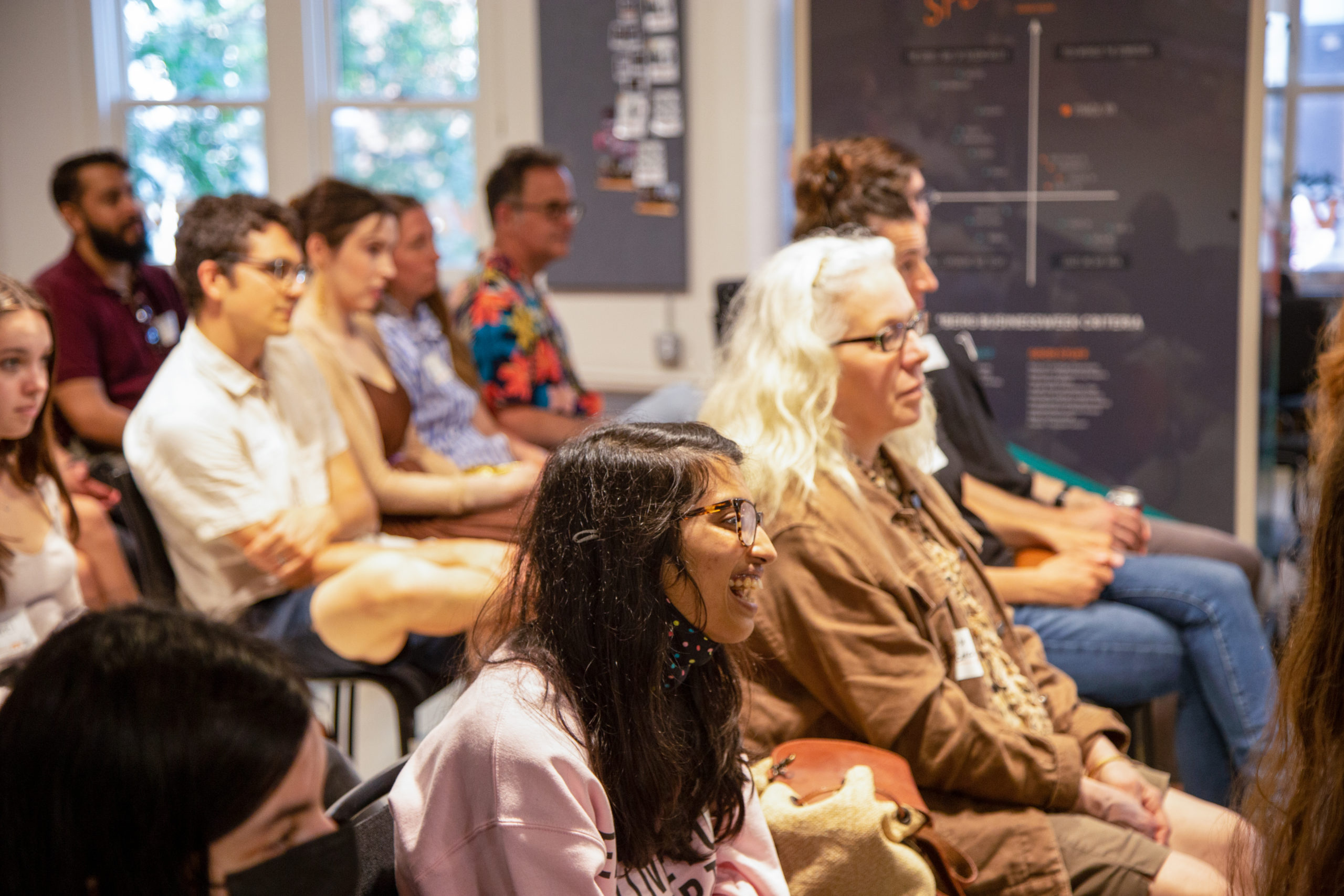

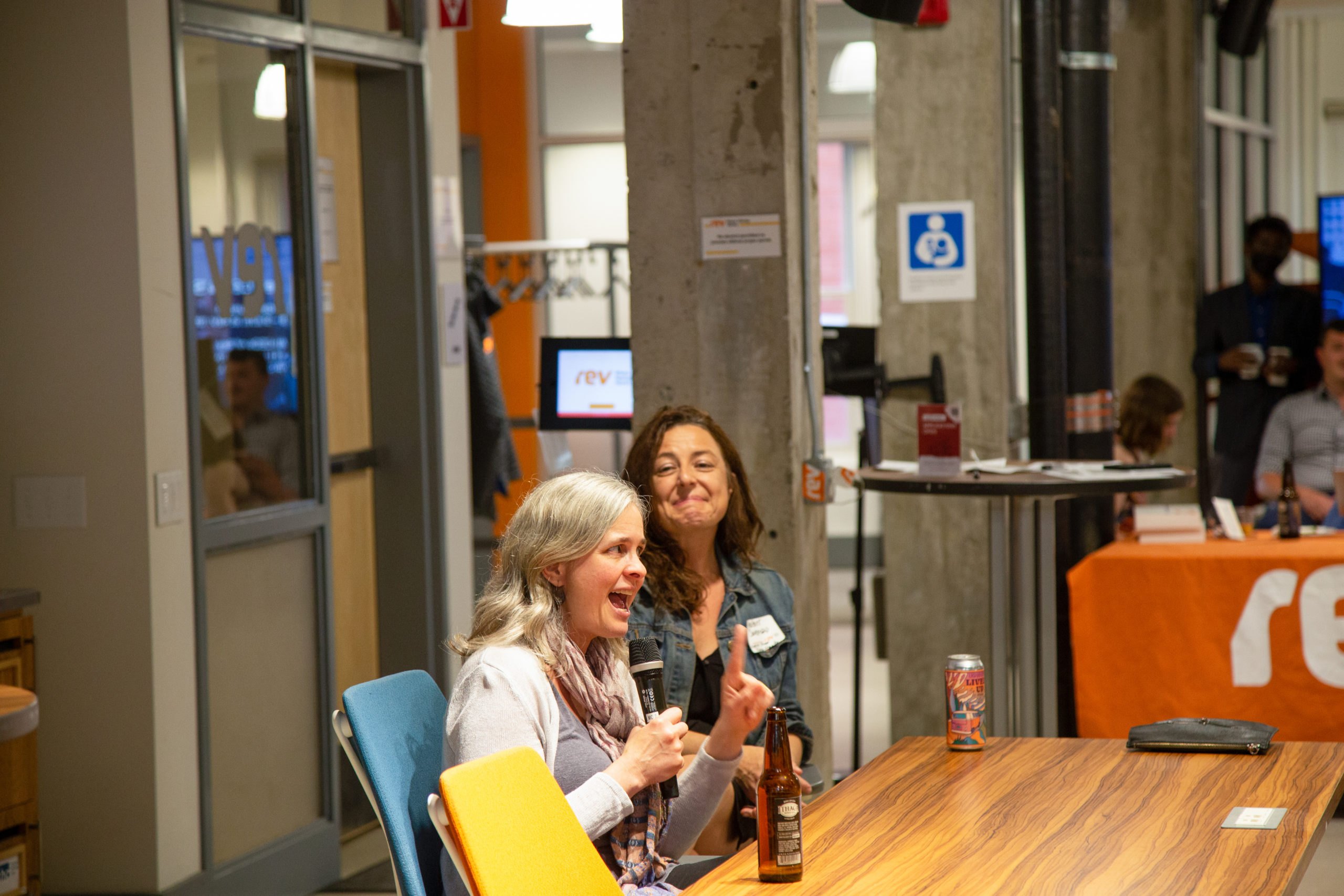

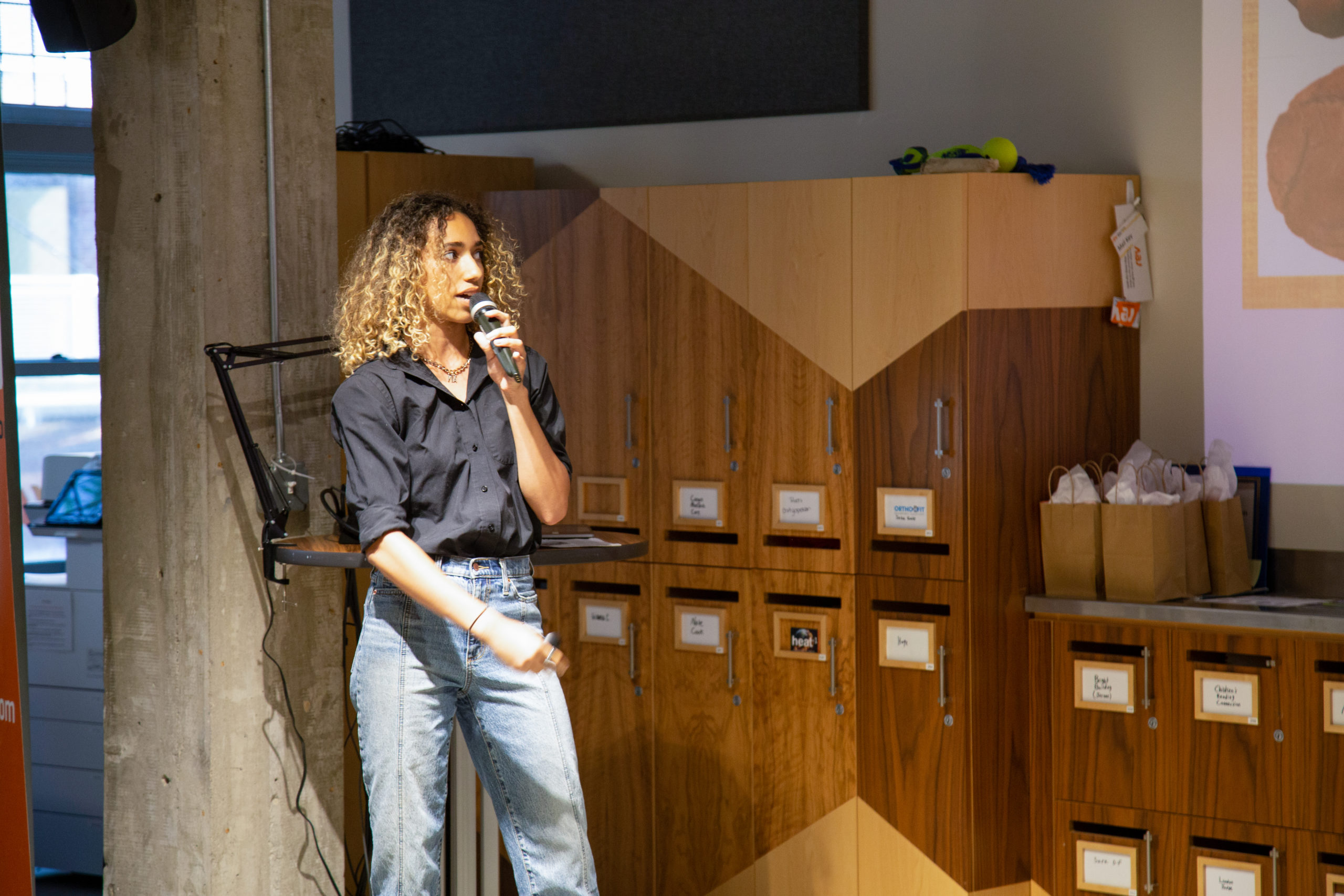

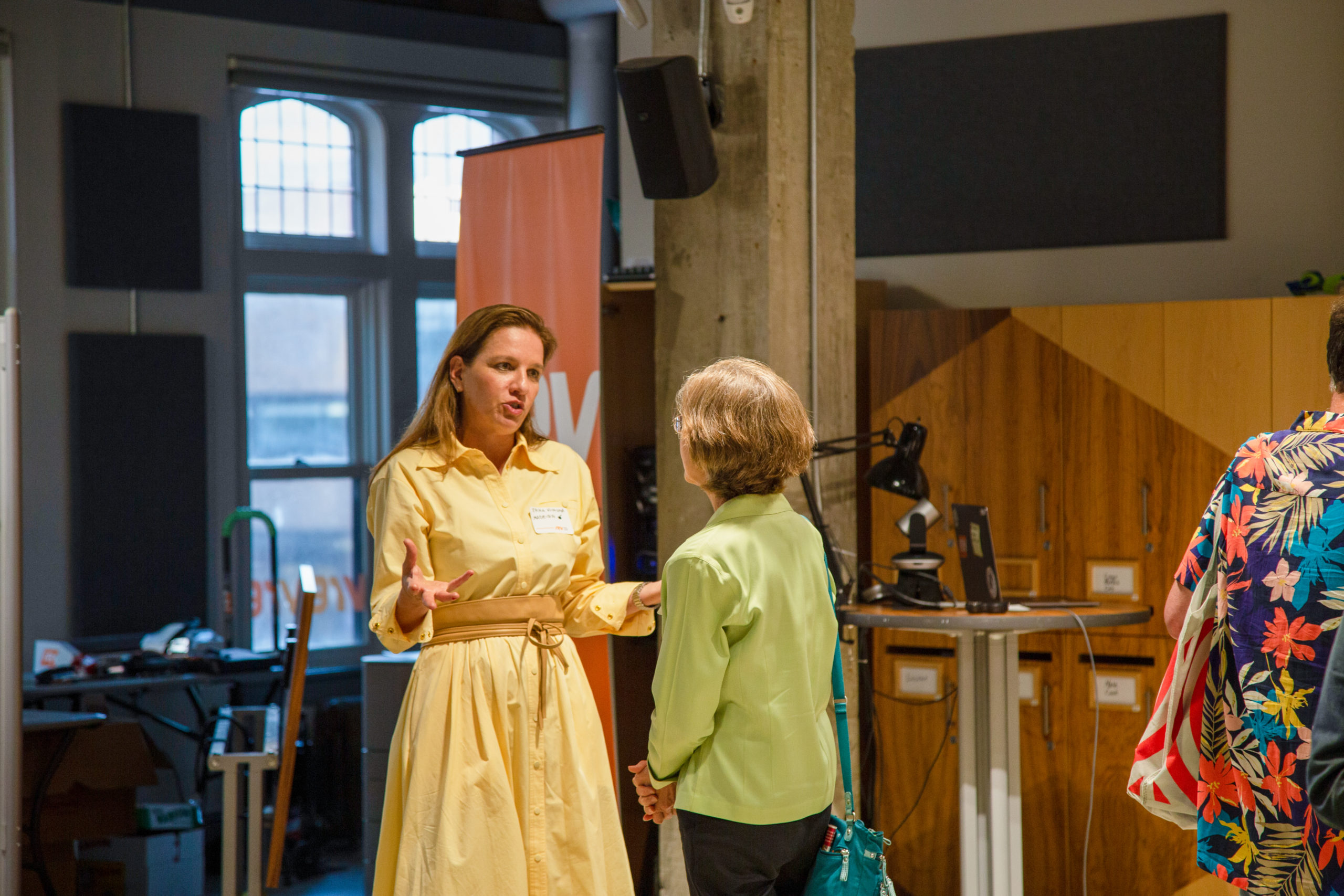

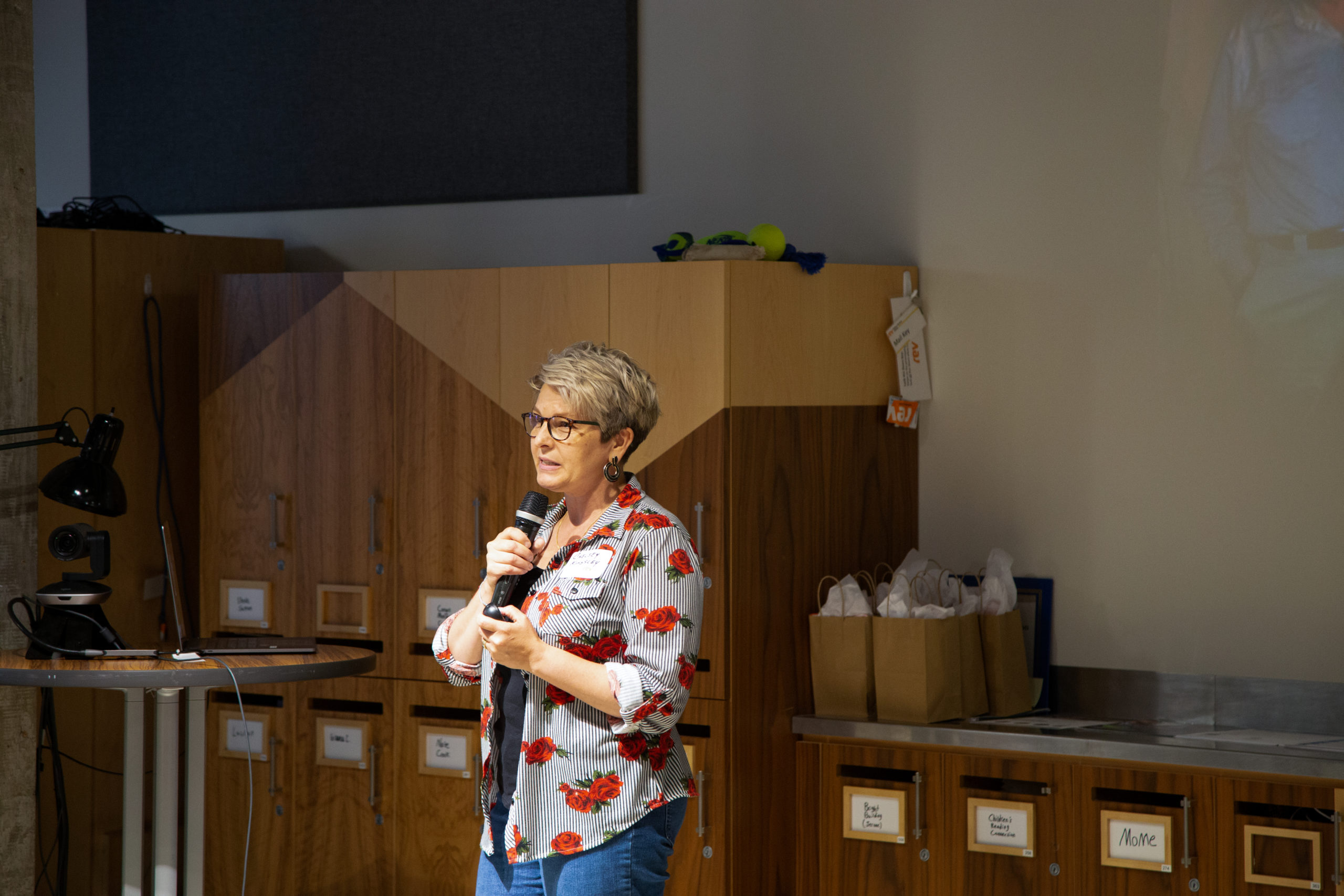

An enlightening panel conversation featuring three female founders, investors, and business leaders addressed these gender disparities. Andrea Ippolito, CEO and founder of SimpliFed, moderated the panel. A Rev member company since 2021, SimpliFed recently closed a $6 million seed round.
“It’s been a stressful few years, let’s be real,” Ippolito said. “But it’s also an awesome time to be a woman entrepreneur and be part of this ecosystem! That is what we’re here to talk about tonight. Let’s start off with some fun stats: Women exit faster, we are more profitable, and we are more innovative.”
Ippolito asked the panelists about their startup stories, ideas for how to promote gender equity in the business space, and why investors should value companies started by women and non-binary entrepreneurs:
- Chloe Capital: “At Chloe Capital, we’re focused on investing in women and BIPOC founders who are addressing the world’s biggest problems — climate, education, health,” said Elisa Miller-Out, managing partner at the venture capital firm. “How are we going to solve these problems for everyone if we don’t have all different voices at the table driving innovation, looking at these problems in unique ways, and who are impacted by these problems in all different and unique ways? They are the people who are going to come up with the best solutions that are going to drive the best businesses and the best returns. It is absolutely good business; it is not charity. This is the way to drive the biggest returns. It’s also the way to solve the world’s biggest problems.”
- The Piggery: “One of the most effective policies is personal responsibility and your personal relationships, and what I mean is that we can move the needle by the product choices that we make,” said Heather Sandford, co-founder of the farm-to-table butcher shop. “We buy with our dollars, and they listen to us. If we support locally owned businesses and if we support businesses that we know have great practices, those concentric circles really grow and have an impact. That’s the biggest and fastest way that we can affect policy.”
- Carbon Upcycling: “I think one of the ways we can get more women and people from diverse backgrounds generally into this space are our hiring practices,” said Madison Savilow, who serves as chief of staff for the clean tech startup, which is working to convert carbon dioxide into products. “We’ve been very, very intentional with our own company about how we want to go about this, and really finding the right fit but finding people that we can help elevate. Another is key ecosystem supporters like Chloe Capital. It’s a great program that they run and allow women to have that opportunity to source funding.”
Following the panel, three female founders pitched their businesses to the audience:
- Madeira: “Acai is our main product, but we have more than 14 ingredients,” founder Erika Kliauga-de-Gorter said. “We do acai bowls, acai snacks, and superfood powders. We just developed a fruit bowl cube — they are all natural, they have nothing added. We have a lot of superfoods in the cube format right now.”
- Kingsley Woodworking: “One of the things that we’ve learned over the years is that it really, really matters to be able to jump in, to connect, and bring the people who matter to you along with you throughout the journey,” co-founder Chelsey Kingsley said. “The products that we produce and make available in the community are architectural woodworking components. It’s our goal to be a company that the community turns to for woodworking expertise, for hardwoods and softwoods, for the architectural wood components that are necessary to build the environments and the spaces that we all live and work and learn in.”
- Via’s Cookies: “My mission is to provide cookies for people with and without food restrictions and simultaneously help BIPOC and LGBTQ+ students so life can be sweet for everyone,” founder Olivia Carpenter said. “I donate 5% of my profits to struggling students. I currently offer wholesale, catering, and retail. These are my four main cookie options that I have narrowed my business down to — I offer these Cookie Crumble, Lemmie Boy, Snickerdoodle, and Chocolate Chip.”
After the presentation portion of the evening, networking resumed over hors d’oeuvres and drinks catered by Rev member company, South Hill Cider. Songs related to empowerment, from Aretha Franklin’s “Respect” to Alicia Keys’ “Girl on Fire,” played in the background as guests continued the conversation about supporting women and non-binary entrepreneurs.
At the next Networking@Rev event on Thursday, August 4, Rev’s current Prototyping Hardware Accelerator cohorts will present their progress to the public with business pitches and prototype demonstrations. Join Rev in supporting these hardware entrepreneurs and check out their innovative product ideas and prototypes! Complimentary local refreshments will be provided, as well as opportunities to network with Ithaca’s vibrant and welcoming startup community. Register here for the free event.
